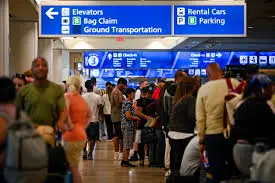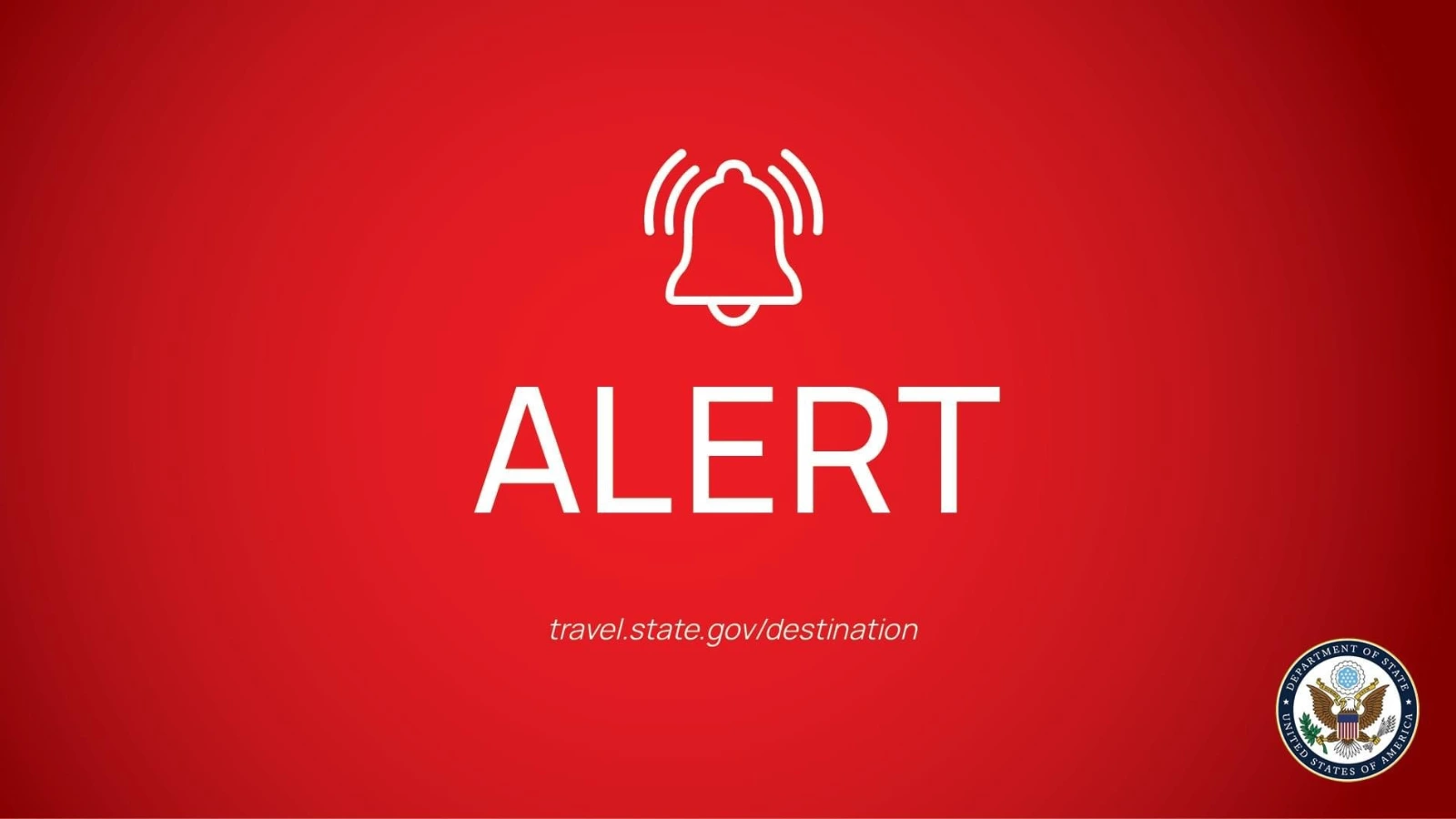
Washington, D.C. – The U.S. Department of State issued a sweeping worldwide caution travel alert on Tuesday, warning American citizens of potential threats while traveling abroad due to a surge in geopolitical tensions, increased terror risks, and growing incidents of anti-American sentiment in several regions.
The State Department travel advisory comes just days after a string of coordinated attacks in the Middle East and amid ongoing unrest in parts of Europe, Asia, and Africa. The move marks the first time in over a year that the U.S. government has issued such a broad-level warning, sparking concern among American travelers, airlines, and international partners.
What Is a Worldwide Caution Travel Alert?
The worldwide caution alert is the most comprehensive form of travel guidance issued by the U.S. Department of State. Unlike country-specific advisories, this type of warning is global in scope and intended to inform U.S. citizens of the elevated risk of terrorism, political instability, and other threats while traveling internationally.
The advisory urges Americans to:
- Exercise increased caution abroad
- Remain aware of surroundings in public places
- Register with the Smart Traveler Enrollment Program (STEP)
- Keep updated via embassy and consular notifications
“We are not telling Americans to cancel all travel plans,” said a State Department official during a press conference today, “but we are urging vigilance, smart planning, and situational awareness.”
Why Was the US Travel Advisory Issued?
The latest US travel advisory follows a series of developments that have raised security concerns for American citizens overseas, including:
- Terrorist activity and threats in parts of the Middle East, Africa, and Southeast Asia
- Heightened tensions between major powers, including the U.S., Iran, China, and Russia
- Increased risk of kidnapping or arbitrary detention of U.S. citizens in authoritarian states
- Cyber and disinformation campaigns targeting Americans abroad
During the press conference today, a State Department spokesperson pointed to “credible intelligence” indicating a “heightened threat environment” in several regions, particularly in areas with a significant U.S. diplomatic or military presence.
What Regions Are Most at Risk?
While the worldwide caution travel alert applies globally, the State Department travel advisory has also updated specific country levels for high-risk regions. Some of the countries currently at Level 3 (Reconsider Travel) or Level 4 (Do Not Travel) include:
- Russia – Due to the ongoing war in Ukraine and risk of wrongful detention
- Iran – Due to arbitrary arrest, regional tensions, and terrorism
- Israel and the West Bank/Gaza – Due to conflict escalation
- Lebanon – Due to unrest and risk of terrorism
- Nigeria – Due to crime, kidnapping, and terrorism
- Myanmar – Due to civil unrest and armed conflict
Travelers are encouraged to check the US Department of State website frequently, as travel advisories are subject to real-time updates depending on global events.
How Does This Affect Travel Plans?
The worldwide caution alert is not a travel ban. It is, however, a serious advisory that may affect:
- Travel insurance coverage for high-risk countries
- Employer policies for overseas travel
- School and university study abroad programs
- Group tours or mission trips
Some airlines may also change or suspend flights to destinations with elevated threat levels. Travel agencies are recommending clients add cancellation coverage and monitor destinations closely.
“While the majority of international trips will proceed without issue, travelers should take the advisory seriously,” said travel risk analyst Lisa Monroe.
What the State Department Recommends
The State Department outlined several key recommendations for Americans planning to travel abroad in the coming weeks:
- Enroll in STEP (Smart Traveler Enrollment Program) to receive embassy alerts.
- Review country-specific travel advisories at travel.state.gov.
- Ensure your passport is valid for at least six months beyond your travel dates.
- Make digital and physical copies of important documents, such as your passport, visa, and insurance.
- Share your itinerary with friends or family members.
- Avoid large public gatherings, especially protests or politically charged events.
- Download embassy contact info for the country you’re visiting.
These tips are especially important for travelers headed to high-risk regions, where embassy assistance may be limited in times of crisis.
Reactions from the Travel Industry
The travel sector is closely watching the impact of the advisory. While most travel companies have not reported widespread cancellations, there is growing concern about trips to politically unstable areas.
“We’re advising our clients to be flexible and prioritize safety,” said Janet Feldman, CEO of WorldBridge Travel. “For now, popular destinations like Western Europe remain stable, but that could change.”
Political and Diplomatic Implications
Issuing a worldwide caution travel alert can strain diplomatic ties, especially if foreign governments view it as a slight against their national security protocols. However, U.S. officials emphasized that the advisory is not directed at any single nation, but rather a response to global patterns of instability.
Some critics argue the timing of the alert may impact international negotiations or exacerbate geopolitical tensions.
Still, most foreign governments acknowledge the right of the U.S. Department of State to protect its citizens abroad, particularly amid rising security threats.
Public Reactions and Social Media Buzz
The advisory has sparked a mix of concern and criticism online. On social media platforms like X (formerly Twitter) and Instagram, the hashtag #travelalert began trending hours after the announcement.
Many users expressed anxiety over upcoming trips, while others questioned whether the alert was politically motivated.
“Booked a trip to Europe next month and now I’m freaking out. What should I do?” one user posted.
“We live in a time of heightened risk, but don’t let fear rule your life. Just stay informed and travel smart,” commented another.
Final Thoughts: Stay Calm, Stay Informed
While the worldwide caution travel alert is a significant advisory, it’s not a call to cancel all international travel. It is, however, a reminder that the world is increasingly complex and unpredictable—and that American travelers should remain vigilant.
The State Department is expected to hold additional briefings in the coming days and provide further updates as global conditions evolve.
For now, if you’re planning to leave the country, check your destination’s advisory level, register with STEP, and stay informed through official government channels.

